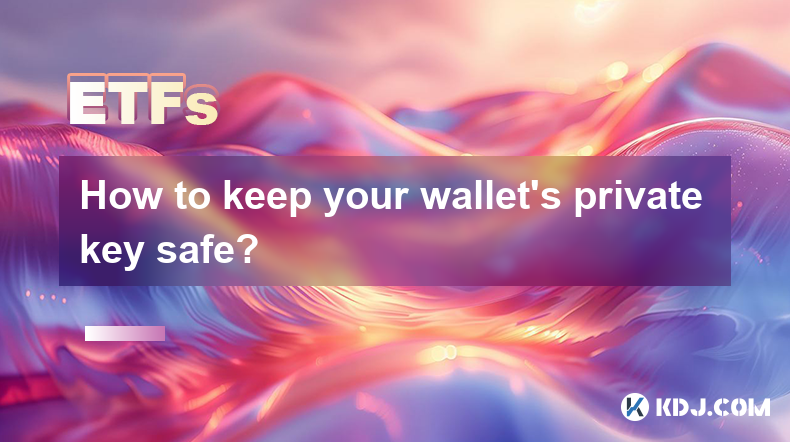-
 Bitcoin
Bitcoin $84,422.3862
-1.22% -
 Ethereum
Ethereum $1,579.4438
-1.72% -
 Tether USDt
Tether USDt $1.0000
0.00% -
 XRP
XRP $2.0539
-1.78% -
 BNB
BNB $589.6626
0.05% -
 Solana
Solana $137.3150
-1.67% -
 USDC
USDC $1.0000
0.00% -
 TRON
TRON $0.2451
0.93% -
 Dogecoin
Dogecoin $0.1543
-2.74% -
 Cardano
Cardano $0.6154
-1.90% -
 UNUS SED LEO
UNUS SED LEO $9.3292
0.64% -
 Chainlink
Chainlink $13.0166
1.86% -
 Avalanche
Avalanche $19.3938
-1.37% -
 Toncoin
Toncoin $2.9697
-0.37% -
 Stellar
Stellar $0.2415
-1.86% -
 Shiba Inu
Shiba Inu $0.0...01228
0.68% -
 Hedera
Hedera $0.1621
-2.21% -
 Sui
Sui $2.1055
-2.01% -
 Bitcoin Cash
Bitcoin Cash $334.5402
-0.94% -
 Polkadot
Polkadot $3.8448
3.11% -
 Hyperliquid
Hyperliquid $17.5557
-3.01% -
 Litecoin
Litecoin $76.0382
-0.15% -
 Dai
Dai $1.0000
0.00% -
 Bitget Token
Bitget Token $4.3529
-4.59% -
 Ethena USDe
Ethena USDe $0.9993
0.01% -
 Pi
Pi $0.6275
-3.58% -
 Monero
Monero $216.3249
1.59% -
 Uniswap
Uniswap $5.1978
-0.97% -
 Pepe
Pepe $0.0...07414
2.25% -
 Aptos
Aptos $5.0082
4.19%
How to keep your wallet’s private key safe?
Securing your cryptocurrency depends on safeguarding your private key, the gateway to your digital assets, employing best practices for protection against compromise and potential financial loss.
Jan 06, 2025 at 03:40 pm

Key Points:
- Understanding the concept and importance of a private key
- Implementing secure wallet storage methods on different platforms
- Employing best practices to protect private keys from unauthorized access and theft
- Understanding the risks associated with private key compromise and measures to mitigate them
How to Keep Your Wallet's Private Key Safe
1. Comprehend the Importance of Private Keys
- Private keys are cryptographic keys that enable users to decrypt transactions, sign digital contracts, and access their cryptocurrency funds.
- Each cryptocurrency wallet has a unique private key that provides exclusive control over the associated funds.
- Private keys should never be shared with anyone as it grants complete access to your digital assets.
2. Secure Wallet Storage: Hardware Wallets
- Hardware wallets are physical devices designed to securely store private keys offline, isolating them from potential online threats.
- Leading hardware wallet options include Ledger, Trezor, and SafePal, offering robust security measures.
- Hardware wallets generate private keys internally and never expose them to the internet, providing a high level of protection.
3. Secure Wallet Storage: Software Wallets
- Software wallets are digital applications that manage private keys on your computer or mobile device.
- Although less secure than hardware wallets, software wallets offer convenience and accessibility.
- Choose reputable software wallets from established providers such as MetaMask, Trust Wallet, or Coinbase Wallet.
- Enable two-factor authentication (2FA) and strong passwords for added security.
4. Mobile Phone Security for Private Keys
- If storing private keys on your mobile phone, prioritize security measures.
- Use strong passwords or biometrics (e.g., fingerprint or facial recognition) to protect access to your wallet app.
- Keep your mobile phone's operating system and wallet app updated with the latest security patches.
- Consider using a separate phone for cryptocurrency management for enhanced security.
5. Cloud Storage Considerations
- Storing private keys in cloud-based services should be approached with caution.
- If using cloud storage, encrypt the private key file with a strong password and enable two-factor authentication on the cloud account.
- Remember, cloud storage is not as secure as hardware or software wallets for long-term private key storage.
6. Phishing and Malware Protection
- Be vigilant against phishing emails and websites attempting to trick you into revealing your private key.
- Never click on suspicious links or download attachments from unknown sources.
- Install reputable antivirus and anti-malware software, and keep it updated to protect against malicious actors.
7. Private Key Backup and Recovery
- Create a secure backup of your private key in case of device failure or loss.
- Use a physical backup, such as writing the key on a piece of paper and storing it securely, or an encrypted digital backup stored on a separate device.
- Set up a recovery phrase or seed phrase, a set of words that can be used to recover your private key if needed.
FAQs:
Q: Can I use the same private key for multiple wallets?
A: No, each wallet has a unique private key that grants exclusive access to the funds stored in that wallet.
Q: What happens if I lose my private key?
A: Access to your cryptocurrency funds will be lost permanently unless you have created a secure backup or have access to a recovery phrase.
Q: Can I generate a new private key?
A: Yes, most cryptocurrency wallets allow you to generate a new private key if your original key is compromised.
Q: Is it safe to store private keys online?
A: Online storage is less secure than offline storage, such as on a hardware wallet. However, with proper precautions like encryption and two-factor authentication, online storage can provide some level of convenience.
Q: What should I do if my private key is stolen?
A: If your private key is stolen, immediately move your funds to a new wallet with a different private key and report the incident to the appropriate authorities.
Disclaimer:info@kdj.com
The information provided is not trading advice. kdj.com does not assume any responsibility for any investments made based on the information provided in this article. Cryptocurrencies are highly volatile and it is highly recommended that you invest with caution after thorough research!
If you believe that the content used on this website infringes your copyright, please contact us immediately (info@kdj.com) and we will delete it promptly.
- The best sources for Coin Master free spins are the daily links that Moon Active posts on the title's official social media handles.
- 2025-04-20 22:05:13
- It Has Been an Exciting Week for BLACKPINK Fans in the UK! From April 17 to 23
- 2025-04-20 22:05:13
- Actor Park Bo Gum Surprises Many with His Smart Investment Skills
- 2025-04-20 22:00:13
- Recent Fan-Funded Ad Featuring Kim Soo-hyun at Seoul's Hongdae Station Has Sparked Backlash
- 2025-04-20 22:00:13
- Cosmos (ATOM) Begins to Show Signs of a Bullish Reversal
- 2025-04-20 21:55:13
- Vietnam Partners with Bybit to Test a Regulated Cryptocurrency Trading Platform
- 2025-04-20 21:55:13
Related knowledge

What role does SEC play in Bitcoin ETF approval?
Feb 25,2025 at 06:48am
Key Points:SEC's Role in Bitcoin ETF Approval ProcessHistorical Efforts to Establish a Bitcoin ETFSEC's Criteria for Bitcoin ETF ApprovalPotential Impact of a Bitcoin ETF on the Cryptocurrency MarketTimeline and Outlook for Bitcoin ETF ApprovalArticle:SEC Play in Bitcoin ETF ApprovalThe United States Securities and Exchange Commission (SEC) plays a crit...

Who is eligible to issue Bitcoin ETFs?
Feb 25,2025 at 11:13am
Key Points:Only regulated financial institutions with the necessary expertise and infrastructure are eligible to issue Bitcoin ETFs.The Securities and Exchange Commission (SEC) has not yet approved any spot Bitcoin ETFs, but has approved several futures-based ETFs.Applicants must meet stringent requirements, including having a strong track record and su...

What impact does Bitcoin ETF have on the market?
Feb 25,2025 at 11:37am
Key Points:Introduction to Bitcoin ETFs and their role in the cryptocurrency marketHistorical development and performance of Bitcoin ETFsPotential benefits of Bitcoin ETFs for investors and the marketRisks and limitations associated with Bitcoin ETFsRegulatory considerations and their impact on Bitcoin ETFsArticle:Introduction to Bitcoin ETFsBitcoin exc...

Which investors are Bitcoin ETFs suitable for?
Feb 27,2025 at 04:01pm
Key Points:Understanding Bitcoin ETFsBenefits of Bitcoin ETFsSuitability of Bitcoin ETFs for Different InvestorsAssessing Risk Tolerance and Investment GoalsConsidering Short-Term and Long-Term StrategiesExamining Tax ImplicationsSeeking Professional AdviceUnderstanding Bitcoin ETFsBitcoin exchange-traded funds (ETFs) are investment vehicles that track ...

What is the administrative expenses of Bitcoin ETFs?
Feb 26,2025 at 12:24am
Key Points:Administrative expenses are a crucial factor to consider when evaluating Bitcoin ETFs.These expenses can significantly impact the performance of the fund and ultimately the investor's returns.Understanding the various components of administrative expenses is essential for informed decision-making.Comparing administrative expenses across diffe...

What are the fees for purchasing Bitcoin ETFs?
Feb 27,2025 at 07:13pm
Key Points:Bitcoin exchange-traded funds (ETFs) are a cost-effective and regulated way to gain exposure to Bitcoin.Fees associated with Bitcoin ETF purchases vary depending on the platform, trading volume, and account type.It is essential to evaluate fee structures carefully to optimize investment returns.Fees Associated with Purchasing Bitcoin ETFs1. B...

What role does SEC play in Bitcoin ETF approval?
Feb 25,2025 at 06:48am
Key Points:SEC's Role in Bitcoin ETF Approval ProcessHistorical Efforts to Establish a Bitcoin ETFSEC's Criteria for Bitcoin ETF ApprovalPotential Impact of a Bitcoin ETF on the Cryptocurrency MarketTimeline and Outlook for Bitcoin ETF ApprovalArticle:SEC Play in Bitcoin ETF ApprovalThe United States Securities and Exchange Commission (SEC) plays a crit...

Who is eligible to issue Bitcoin ETFs?
Feb 25,2025 at 11:13am
Key Points:Only regulated financial institutions with the necessary expertise and infrastructure are eligible to issue Bitcoin ETFs.The Securities and Exchange Commission (SEC) has not yet approved any spot Bitcoin ETFs, but has approved several futures-based ETFs.Applicants must meet stringent requirements, including having a strong track record and su...

What impact does Bitcoin ETF have on the market?
Feb 25,2025 at 11:37am
Key Points:Introduction to Bitcoin ETFs and their role in the cryptocurrency marketHistorical development and performance of Bitcoin ETFsPotential benefits of Bitcoin ETFs for investors and the marketRisks and limitations associated with Bitcoin ETFsRegulatory considerations and their impact on Bitcoin ETFsArticle:Introduction to Bitcoin ETFsBitcoin exc...

Which investors are Bitcoin ETFs suitable for?
Feb 27,2025 at 04:01pm
Key Points:Understanding Bitcoin ETFsBenefits of Bitcoin ETFsSuitability of Bitcoin ETFs for Different InvestorsAssessing Risk Tolerance and Investment GoalsConsidering Short-Term and Long-Term StrategiesExamining Tax ImplicationsSeeking Professional AdviceUnderstanding Bitcoin ETFsBitcoin exchange-traded funds (ETFs) are investment vehicles that track ...

What is the administrative expenses of Bitcoin ETFs?
Feb 26,2025 at 12:24am
Key Points:Administrative expenses are a crucial factor to consider when evaluating Bitcoin ETFs.These expenses can significantly impact the performance of the fund and ultimately the investor's returns.Understanding the various components of administrative expenses is essential for informed decision-making.Comparing administrative expenses across diffe...

What are the fees for purchasing Bitcoin ETFs?
Feb 27,2025 at 07:13pm
Key Points:Bitcoin exchange-traded funds (ETFs) are a cost-effective and regulated way to gain exposure to Bitcoin.Fees associated with Bitcoin ETF purchases vary depending on the platform, trading volume, and account type.It is essential to evaluate fee structures carefully to optimize investment returns.Fees Associated with Purchasing Bitcoin ETFs1. B...
See all articles























































































